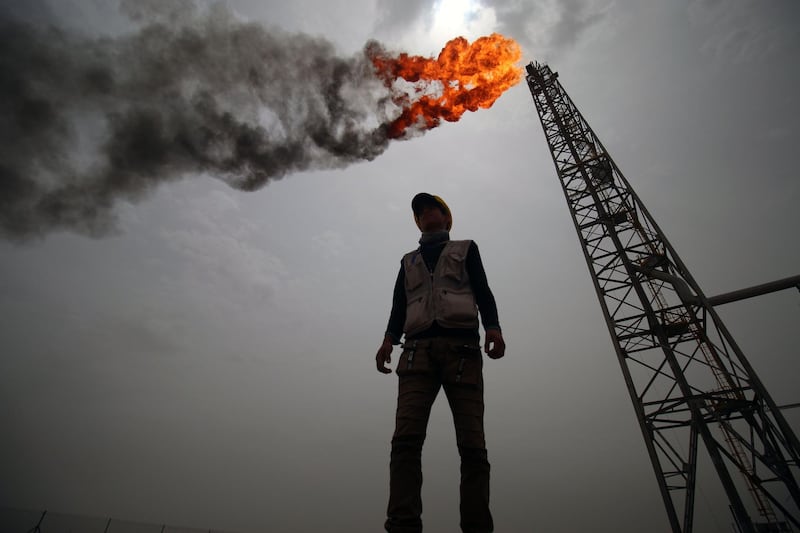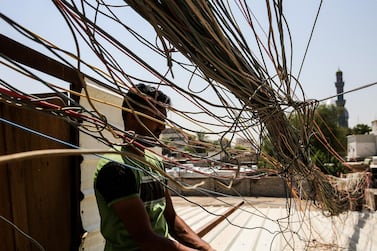German industrial firm Siemens signed an agreement worth €700 million (Dh2.88bn) to rebuild Iraq's power sector as part of a plan to overhaul the country's damaged utilities.
The first phase of the estimated $15bn scheme for installation of 11GW of power capacity should reach financial close in "the next months", Dietmar Siersdorfer, chief executive at Siemens Middle East told The National.
"As soon as Phase 1 financial closing is completed we will start addressing the next items on the list for the mid-term measures," he added.
Iraq has been courting large multinational energy companies such as Siemens and GE to rebuild its damaged utilities as well as reduce gas flaring, which has led to billions of dollars in lost revenue over the past decade.
As part of its first phase, Siemens will build a 500 MW gas-fired power plant in Zubaidiya, south of Baghdad, as well as upgrade 40 gas turbines with upstream cooling systems. Siemens would also undertake installation of 13 substations across Iraq. Mr Siersdorfer said the roadmap was "bankable" and would support the Iraqi government in "obtaining appropriate financing and arranging coverage for the majority of the scope" of the planned schemes.
Critical projects listed include additions of power generation capacity, rehabilitation and upgrade of existing power plants, fuel treatment, better utilisation of flared gas as well as expansion and strengthening of the transmission and distribution networks.
The chief executive had told the paper on Monday the company was awaiting approval by the Iraqi electricity ministry and would prioritise “older stations” and work on switching existing stations from “open cycle to combined cycle” to increase efficiency.
The company’s approach would be a “phased one” and priority would also be accorded to wean Iraq from its dependence on electricity imports from its neighbours, he said.
Iraq's electricity minister Luay Al Khateeb told The National earlier this month his ministry was reviewing the Siemens' proposal "very favourably".
Rival GE had submitted a proposal around the same time last year for a 14GW capacity addition in Iraq. Its proposal however, was overshadowed by suggestions that the US had been pressuring Baghdad to favour its company over Siemens.
Mr Al Khateeb observed that Iraq had “a good and equal and balanced relationship with all countries” but favoured the German proposal for looking at the country’s requirements on a “cross-sector basis” covering transmission, distribution and power generation.
GE's regional president and chief executive said in an interview with The National earlier this month that the company enjoyed "advocacy" support from the US government and said it was interested in pushing for gas flare reduction as well as energy independence for Iraq.
A World Bank assessment has pegged the cost of rebuilding Iraq at around $150bn, with the utilities sector ranking high on the government’s list of priorities. A crippled utilities network was the main factor behind protests across Iraqi provinces during the summer months, when temperatures can easily reach up to 50°C, occasionally requiring government mandated holidays to cope with the extreme weather.








